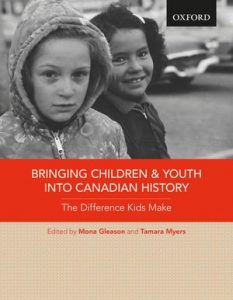My very latest research project is entitled “Families without Schools: Rurality, Remoteness, and the Promise of Schooling in Western Canada, 1900 to 1960.” In it, I return to the archival collection of the British Columbian Elementary Correspondence School Collection and again concentrate on what letters from parent and students to governmental officials reveal. Here is a brief description of the focus:
“This project investigates a challenge to public schooling in the twentieth century that remains under-examined in the history of education: living in remote and isolated locations where attending a traditional public school was impossible. The research is based on the archival collection of the Elementary Correspondence School (ECS) that operated under the auspices of the Department of Education in the western Canadian province of British Columbia between 1919 and 1960. Between these decades, the ECS sent correspondence materials free of charge to families who indicated that they had school-aged children but lived more than five miles from the nearest public school. Along with being far from schools, these families were often limited by treacherous terrain. Contained within this larger archive is a collection of hundreds of letters exchanged between White settler families (parents and children) and ECS teachers and officials. Eager to take advantage of correspondence schooling, families received the approved curriculum in the mail, children then completed the various lessons, and sent them back to the ECS for marking and feedback.
The ECS family letters represent a remarkable repository of parent and child perspectives on the value and purpose of schooling over the twentieth century in rural British Columbia. They amplify the voices of those often silent in the history of education: parents and children generally, and rural parents and children, particularly. Through the letters, we gain a deeper understanding of their attitudes towards schooling even as they found themselves without the benefit of traditional public schools. Three key questions guide the project: How did settler parents and children negotiate their rural and remote setting with the desire to get an education? How did they articulate the purpose and value of going to school and what impact did their rural and remote location have on these articulations? What can this history reflect about contemporary engagement with school inclusion and exclusion?”
Stay tuned for more details of the project. In the meantime, see my co-authored article on another dimension of the ECS collection to appear in the fall in the journal, Childhood.
Claudia Diaz Diaz and Mona Gleason, “The Land is My School: Children, History, and the Environment in the Canadian Province of British Columbia,” Childhood (In Press, November, 2016).

